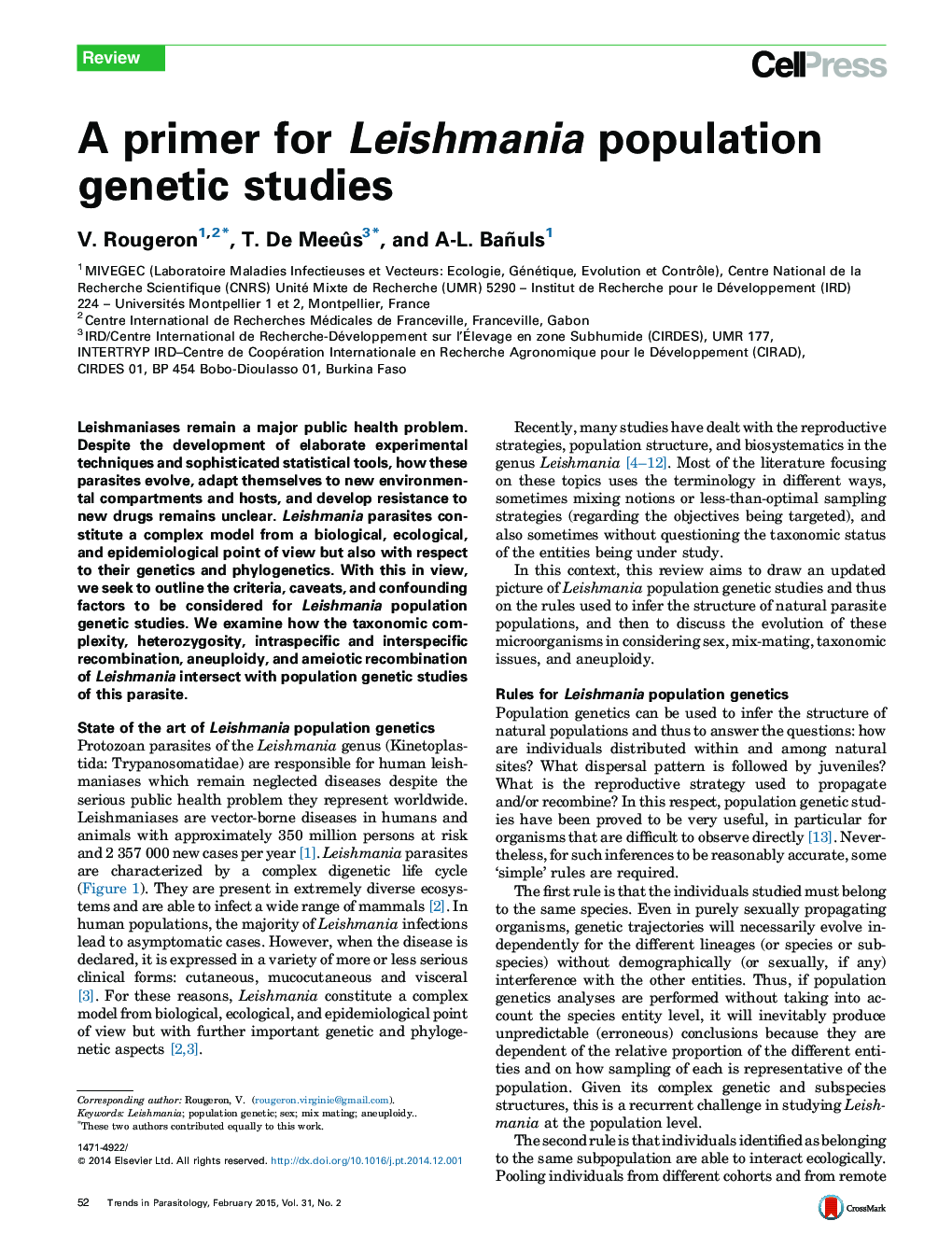| Article ID | Journal | Published Year | Pages | File Type |
|---|---|---|---|---|
| 3423005 | Trends in Parasitology | 2015 | 8 Pages |
•Population genetics can be used to infer the biology of Leishmania parasites.•Leishmania are characterized by a continuum of mixed reproductive strategies.•Clonality and heterozygosity are useful factors for defining Leishmania strains.•Aneuploidy and ameiotic recombination seem to be the rule in Leishmania parasites.
Leishmaniases remain a major public health problem. Despite the development of elaborate experimental techniques and sophisticated statistical tools, how these parasites evolve, adapt themselves to new environmental compartments and hosts, and develop resistance to new drugs remains unclear. Leishmania parasites constitute a complex model from a biological, ecological, and epidemiological point of view but also with respect to their genetics and phylogenetics. With this in view, we seek to outline the criteria, caveats, and confounding factors to be considered for Leishmania population genetic studies. We examine how the taxonomic complexity, heterozygosity, intraspecific and interspecific recombination, aneuploidy, and ameiotic recombination of Leishmania intersect with population genetic studies of this parasite.
